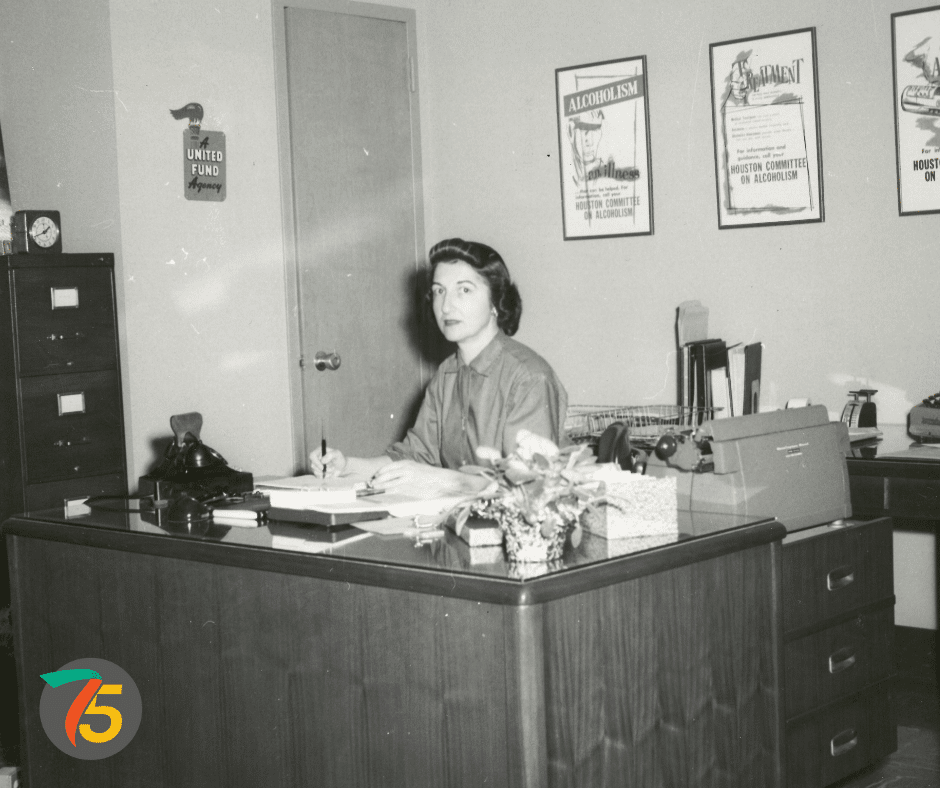Over the last six months, the communications team has been combing through The Council’s archives in preparation for our 75th Anniversary, poring over thousands of photos, mementos, newspaper clippings, board minutes, flyers, planning documents, and notes. Our goal was simple: to celebrate the story of The Council.
Throughout the coming year, we want to bring that story to each of you – the story of our roots and evolution; our victories and setbacks; the story of attitudes that changed with time and those that remained stubbornly the same; and of the defining values and principles that guided us through the decades to make The Council the organization it is today. Most importantly, we want people to see The Council’s impact on Houston over the last three-quarters of a century and to join us in redoubling our efforts in the years ahead with renewed vigor and excitement.
The reality is that our work is not yet done, nor do we expect it to ever be fully finished.
In 1957, Dr. Spencer Bayles, a board member of The Council who also supervised our Alcoholic Treatment Clinics, said, “The Council cannot expect to be able to treat all the alcoholics in Houston…[instead] its function should be to point the way and to train others in the treatment process.”
Dr. Bayles’ words still ring true today. The magnitude of addiction in our community cannot be solved by our efforts alone. But we believe today – just as we believed 75 years ago – that addiction is a disease that can be treated and that it is worth our best efforts. And we will never stop pointing the way to recovery.

The story of The Council is not just our own. Instead, it is the story of the millions – yes, millions – of lives touched by our work, and how their recoveries have rippled out across time to make our world a better place.
As we celebrate our accomplishments this year, we invite you to join with us to tell your own Council story. After all, you have trusted us over the last 75 years with your time, talent, and treasure, and our work continues today for you and because of you.
Contact us here to share your Council story today. To learn more about our rich history, click here.
